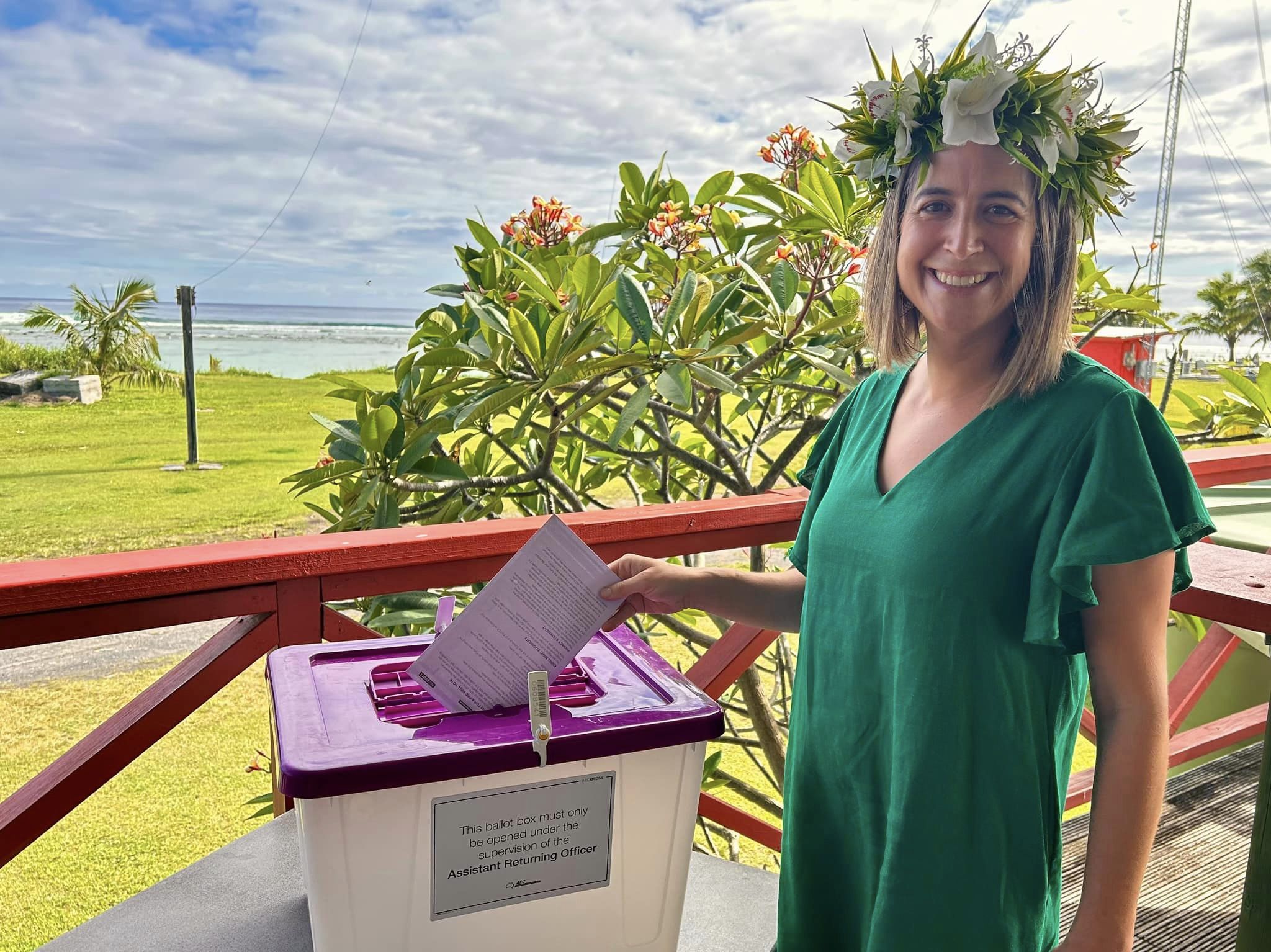Indigenous Voice Referendum: ‘Constitutional change in Australia is challenging’
Friday 20 October 2023 | Written by Al Williams | Published in Australia, Local, National, Regional

Australian High Commissioner to the Cook Islands Phoebe Smith casts her vote at the RSA Hall in Nikao on October 10, 2023. AHC/23101925
Australia has responded with a resounding no to a referendum seeking to change its Constitution and give indigenous people a voice. A Cook Islands voter says the result is deeply saddening.
On Rarotonga, the Australian High Commission held voting for the referendum on Tuesday 10 October with over 50 people voting in-person.
Australian High Commissioner to the Cook Islands Phoebe Smith acknowledged constitutional change in Australia is challenging, saying since federation, eight of 45 referendums (this referendum was the 45th) had succeeded.
“Australians debated the proposed change to the Constitution openly and robustly. That we can do so is a source of national strength; Australians can disagree and yet respect the outcome of a free and transparent ballot,” Smith said.
“Australians, indigenous and non-indigenous, remain determined to close the gap between us in life expectancy, educational achievement and economic opportunity.
“We embrace the possibility of new solutions to enduring problems, drawing upon mutual respect, resolve and responsibility.”
The referendum drew a mixed reaction from Australians here and abroad.
Cook Islands Australian Jacki Brown said the “no vote” was deeply saddening.
“It was a modest request, originating from the Uluru Statement of the Heart, to allow an advisory body to Parliament for matters concerning and affecting Aboriginal and Torres Strait Islander people and to recognise them as First Nations people on the land called Australia,” Brown said.
“This could have been a defining and unique moment in the nationhood of Australia with the recognition in the Constitution of the oldest, continuous living culture on planet Earth.
“This could have been the start of truth telling about the recent history and injustices of colonisation towards Australia’s first peoples.”
Brown asked where does the referendum result now leave Australia.
“Most Australians will continue their lives with all the pressures of living in the 21st century. Australia, ‘the lucky country’ and the land of ‘the fair go’, rejected an opportunity to respect, value and include the First People of this land.
“Aboriginal, and for over six millennia. Herein lies the hope for the future spiritual well-being of Australia. Always was, always will be Aboriginal land.”
For visiting Aussie Jeanette Ball, who was in the country earlier this month, there were specific concerns.
“What else was very significant, were the deals done with big business and big sport to promote the Yes cause, millions and millions of dollars donated out of union funds and business profits that should have gone to shareholders,” said Ball.
“Many charities, church organisations and businesses also donated, especially since, at least until late in the piece, only donations to the Yes cause were tax-deductible.
“Many of these smaller concerns would have donated as they were told by the Prime Minister that 80 per cent of indigenous wanted the voice to Parliament; This was patently untrue, as borne out by actual votes from indigenous communities around Australia.”














































